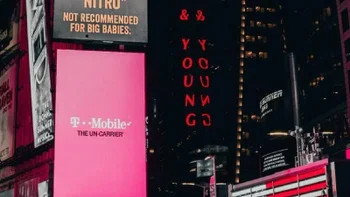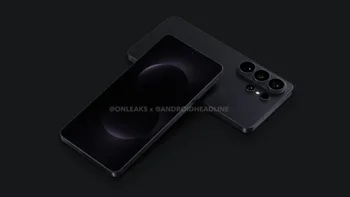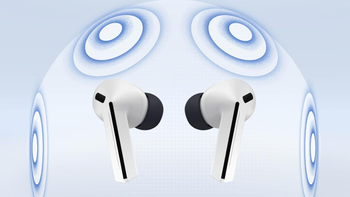Change the history books, John Sculley says he never fired Steve Jobs

The history books record Steve Jobs' departure from the company he co-founded as the result of being fired by the Apple Board of Directors on behalf of the man he brought in to run the company. Now, 26 years later, it looks like the history books will have to be re-written. Brought into Apple in 1983 by Steve Jobs, John Sculley had absolutely no background in running a tech company . Sculley was CEO of Pepsi at the time, and Apple's board felt that Jobs was too young to be CEO of his own company. Jobs got Sculley to jump ship by asking him, "Do you want to sell sugar water for the rest of your life or do you want to come with me and change the world?”
John Sculley was brought to Apple for two reasons. One was for him to keep revenue flowing into the Apple II line for about three years which would buy some time for Apple to deliver on the MacIntosh series. The second reason was that Jobs had been impressed with the way Sculley used the Pepsi Challenge to market the soft drink while playing number two to Coke's number one. It is possible that Jobs hoped for Sculley to present Apple's computers in the same way, as the upstart number two compared with the number one Microsoft/IBM combo.
At first, the pair got along well as Jobs pumped Sculley for information on how he marketed Pepsi so successfully. For five months, the pair would take turns with Sculley flying to the West Coast and Jobs flying in to the Big Apple. Sculley told Jobs that, "One of the key insights we learned (at Pepsi) was that you don’t sell the product, you sell the experience."
Around March 1985, the relationship was becoming strained. Mac sales were not doing well and Jobs wanted to cut the price, throw money into advertising the product, and reduce the emphasis of the Apple II line. Sculley disagreed. To his way of thinking, the Mac simply was just not ready and the company needed to push the Apple II. Sculley called Jobs' bluff and went to the Board of Directors about the disagreement.
The Board asked vice chairman Mike Markkula to interview key people at the company to see who was right, Sculley or Jobs. Ironically, it was almost like the Pepsi Challenge. After ten days, Markkula reported to the Board that the majority said that Sculley was right, that the Mac was not ready and Jobs was asked to step down as the leader of the MacIntosh division.
"So Steve was never actually “fired” from Apple, but he was demoted from the role of leading the Macintosh division and then he went off on sabbatical and then he eventually resigned from the company and took a number of key executives and started NeXT Computing," Sculley said. And when Jobs left for NeXT, he took key Apple personnel with him despite a promise not to, according to Sculley who added, "At the time I left, Apple was the number one selling personal computer in the world. And we had an 8.3 [percent] worldwide market share at that point. We were the most profitable personal computer company in the world."
Both Jobs and Sculley-who admitted he knew nothing about computers when hired at Apple-later agreed that the latter was not the right man for Apple. Jobs later complained that he destroyed everything he spent ten years working for.
For his part, Sculley admitted that technology finally caught up to the vision of Steve Jobs. The work that Jobs did at NeXT was ahead of its time, according to Sculley, but it became "the core for Apple's recovery when computers were powerful enough and the cost of technology had come down enough."
Steve Jobs rejoined Apple when NeXT was purchased by the Cupertino based firm, and the rest is history. That is, until someone comes forward to change it.
source: BBC, MacObserver via AppleInsider

Around March 1985, the relationship was becoming strained. Mac sales were not doing well and Jobs wanted to cut the price, throw money into advertising the product, and reduce the emphasis of the Apple II line. Sculley disagreed. To his way of thinking, the Mac simply was just not ready and the company needed to push the Apple II. Sculley called Jobs' bluff and went to the Board of Directors about the disagreement.
"So Steve was never actually “fired” from Apple, but he was demoted from the role of leading the Macintosh division and then he went off on sabbatical and then he eventually resigned from the company and took a number of key executives and started NeXT Computing," Sculley said. And when Jobs left for NeXT, he took key Apple personnel with him despite a promise not to, according to Sculley who added, "At the time I left, Apple was the number one selling personal computer in the world. And we had an 8.3 [percent] worldwide market share at that point. We were the most profitable personal computer company in the world."
Steve Jobs told a different story during his commencement address at Stanford University in June 2005. According to him, "We [Apple] had just released our finest creation — the Macintosh — a year earlier, and I had just turned 30. And then I got fired. How can you get fired from a company you started? Well, as Apple grew we hired someone who I thought was very talented to run the company with me, and for the first year or so things went well. But then our visions of the future began to diverge and eventually we had a falling out. When we did, our Board of Directors sided with him. So at 30 I was out. And very publicly out."
Both Jobs and Sculley-who admitted he knew nothing about computers when hired at Apple-later agreed that the latter was not the right man for Apple. Jobs later complained that he destroyed everything he spent ten years working for.
Steve Jobs rejoined Apple when NeXT was purchased by the Cupertino based firm, and the rest is history. That is, until someone comes forward to change it.
source: BBC, MacObserver via AppleInsider

Follow us on Google News














Things that are NOT allowed:
To help keep our community safe and free from spam, we apply temporary limits to newly created accounts: